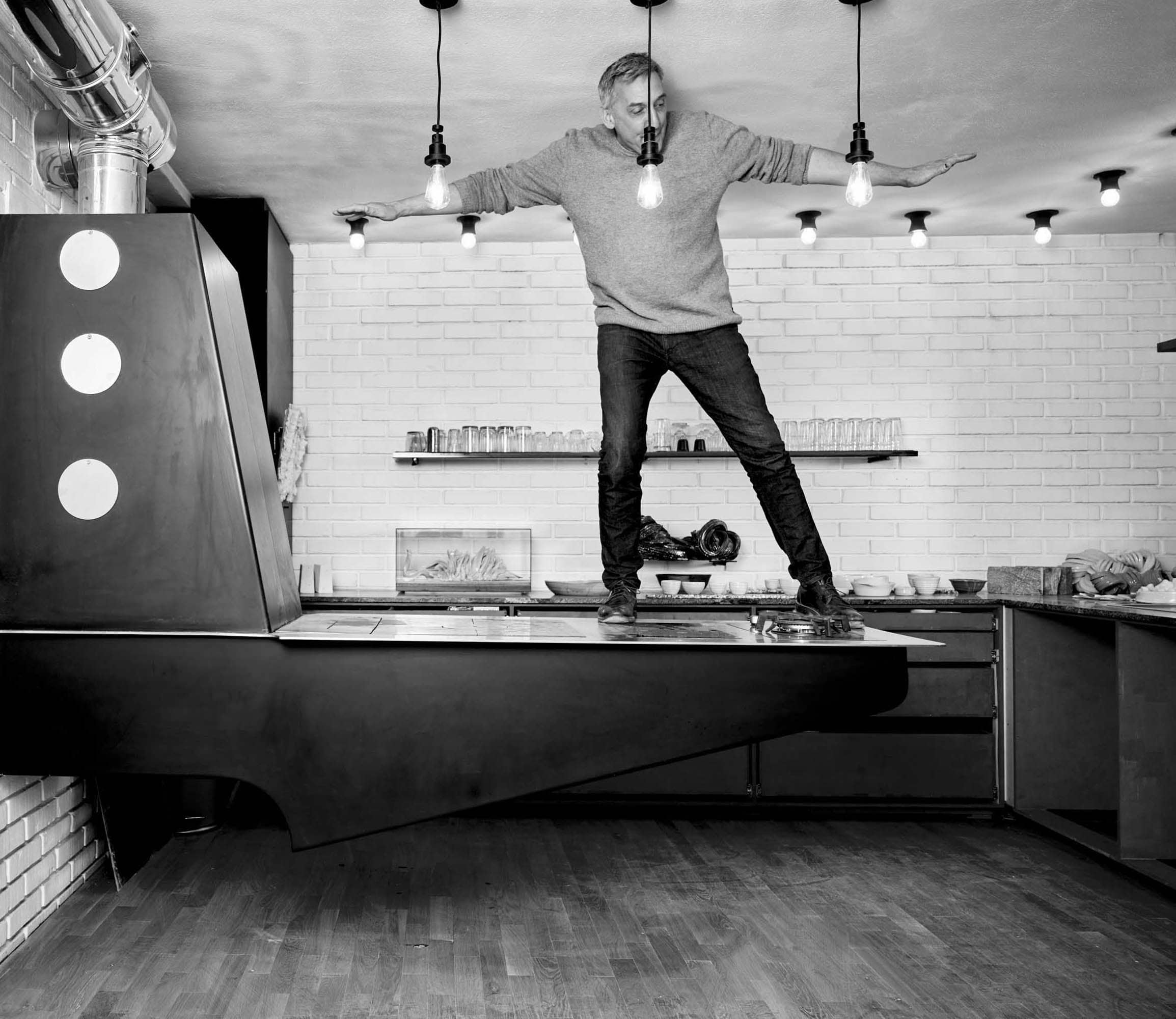Lord of the Bees
PHOTOS: Mirco Taliercio
TEXT: Nina Wessely
ARTICLE PUBLISHED
S Magazin | ISSUE 1
ORDER S MAGAZIN
The Terroir discussion is moving away from wine. Now it’s honey reflecting the lands where the bees are busy: styrian honey from beekeeper Johannes Gruber, where vintages are compared from year to year. A look at landscapes in jars of residual sugar levels made by 16 millions feelers.
PHOTOS: Mirco Taliercio
TEXT: Nina Wessely
ARTICLE PUBLISHED
S Magazin | ISSUE 1
ORDER S MAGAZIN
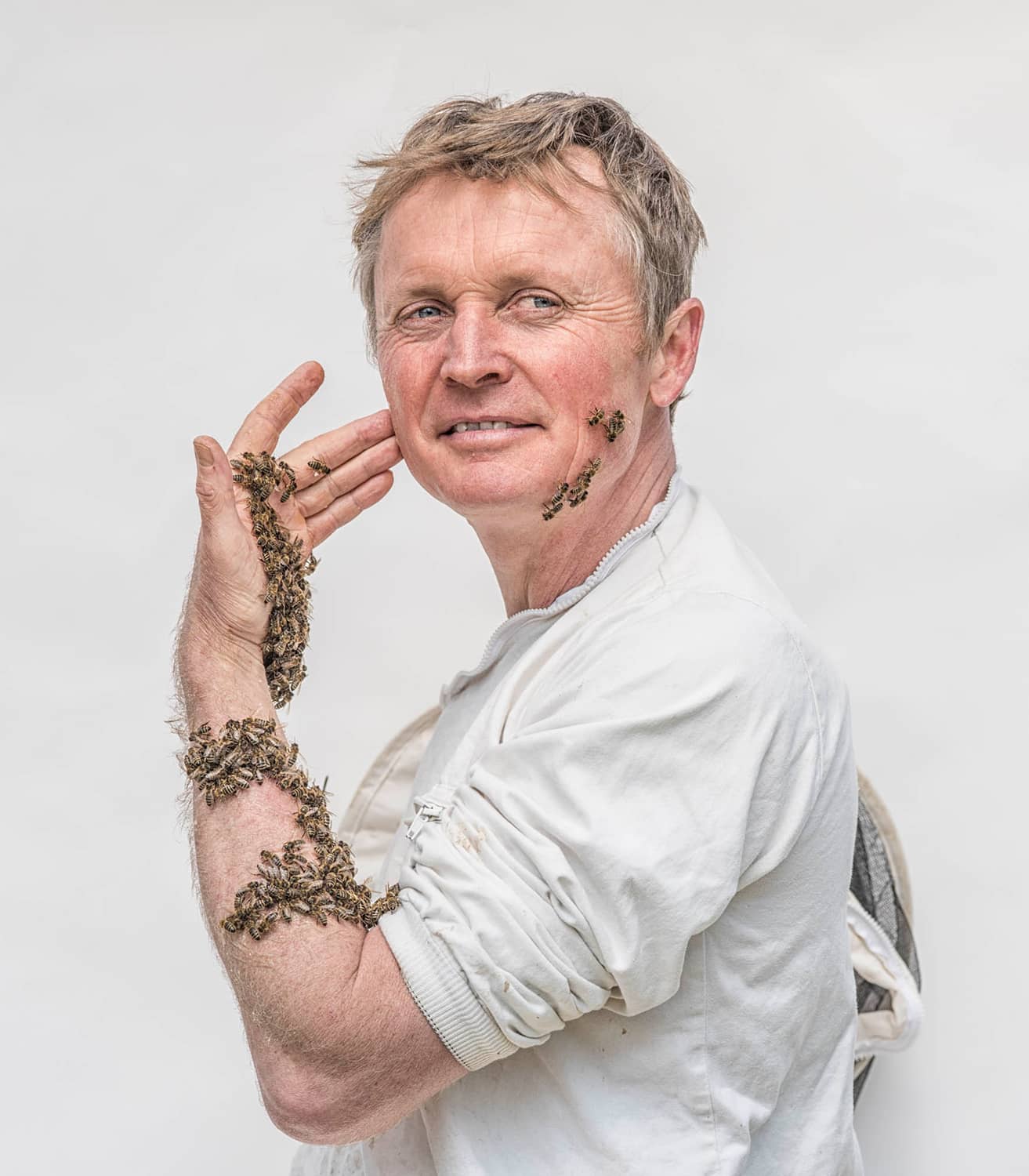
Musicians, artists or chefs are said to have a revolutionary spirit; less so beekeepers. Indeed, a first encounter with Johannes Gruber in Buch am Buchberg in Styria does little to challenge this cliché. However, it soon becomes clear that a revolutionary heart does beat in Johannes Gruber’s chest, fighting for greater awareness and consideration of origins, this time in regard to honey. Earlier on he believed in the natural power of wines, grown organically, bottled free of contamination. The Styrian sold them in Paris and the south of France at a time when in Austria biodynamics was something talked about behind closed doors.
Today, revolutionaries regard organic and natural wines as old hat. Maybe that’s why Johannes Gruber fills up jars with landscapes made from honey, and why he’s moved back from France to the hills of eastern Styria. Here he’s busy shaking up the assumption that there’s just simple flower and forest honey. “In the honey, the bees reflect the landscapes they live in”, all within a radius of four kilometres (two and a half miles). It could be compared to a Grand Cru from Burgundy, where the wine grown in a few hectares characterises its region. “A jar of wood honey, please,” is not good enough for Gruber. The order should be for “a jar of Stuhleck mountain wood honey, vintage 2013”. Several of the nomadic beekeeper’s hives stand at the Stuhleck, in the foothills of the Fischbacher Alps, 1,200 metres (4000 feet) above sea level. He doesn’t carry his hives to the meadows on his back like they used to 200 years ago: these days bees travel by car, in Gruber’s case an old VW van criss-crossing southern and eastern Styria. This can be up to three times per season, whenever a bloom has faded and it’s time to move on into the forest or to a field of sunflowers.
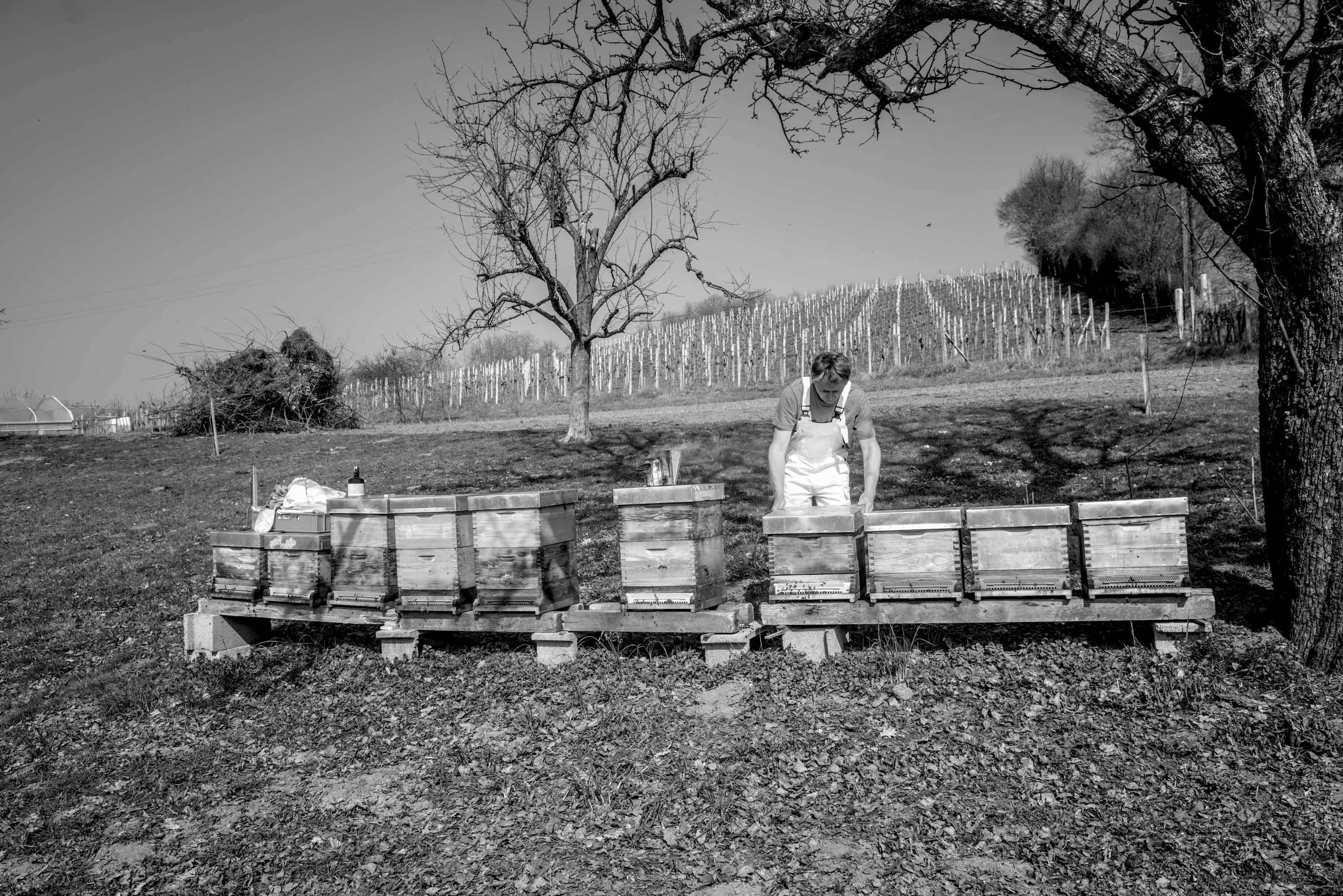
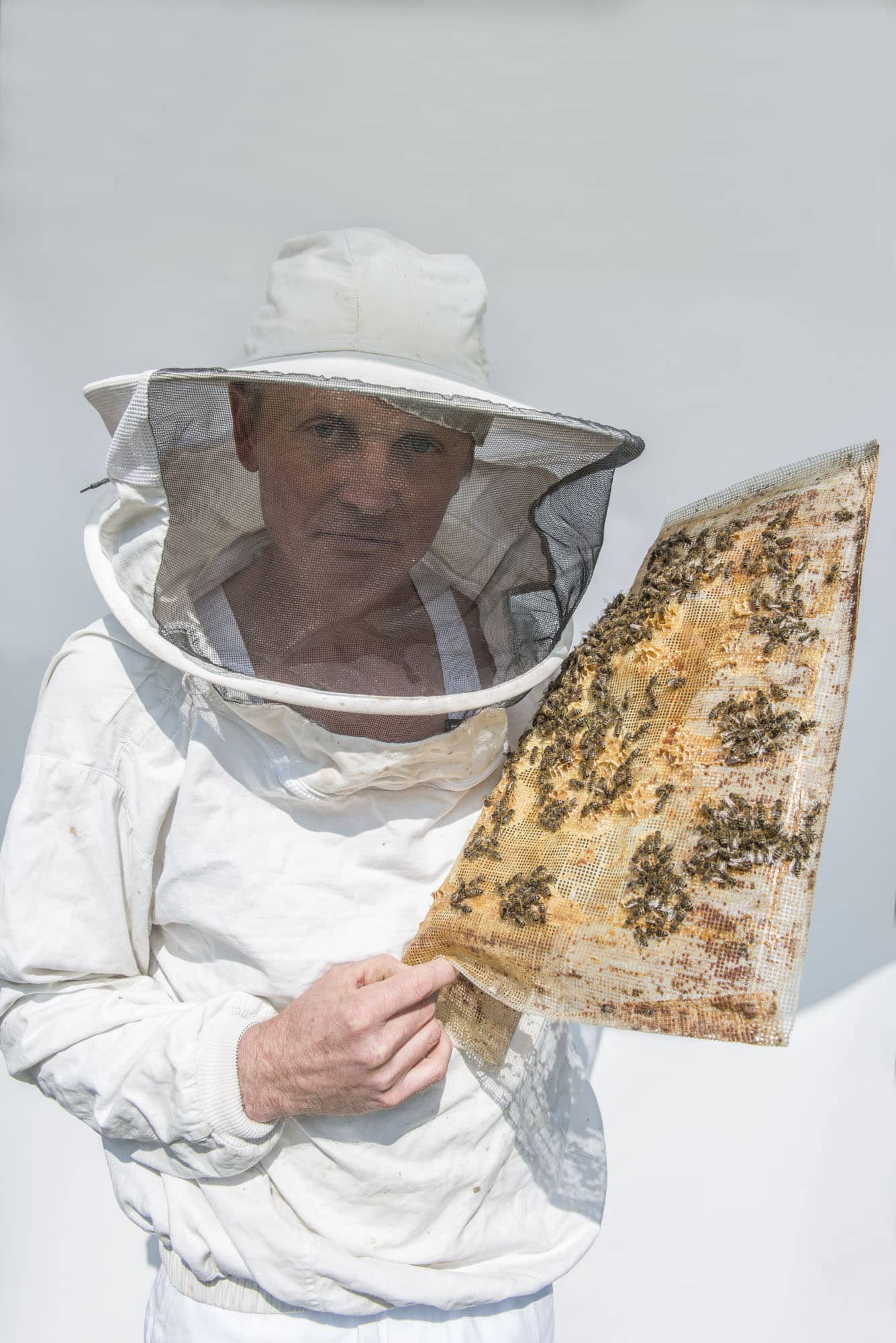
The bees are always busy gathering and filling up the honeycombs with fresh honey, from buckwheat pollen or cherry orchards near the Slovenian border. Gruber takes out and the full honeycombs and replaces them with empty ones. “You only need to know what is in bloom when and where, and of course you also have to be on good terms with the farmers,” says the beekeeper. They profit from the bees on their land, too: it’s an ingenious system that couldn’t have been designed better by an economist, a win-win solution for everyone, and 40–50 kilos (88–110 pounds) per comb. “That’s even though beekeeping avoids industrialisation as much as possible,” the former wine trader explains. The bees just can’t cope with it. Maximising profits or splitting bee populations too often to keep even more hives doesn’t work. “The bees will die.” A beekeeper’s job is to ensure that there’s always enough but not too much space in the hives. “The temperature is crucial. If the hive’s too big it gets too cold. If there are too many bees in one place there’s a risk that they’ll swarm out,” settling instead in a tree trunk or somewhere else more suitable and comfortable. To avoid that, the bees need visiting at least once every ten days, which limits the number of bee populations a beekeeper can look after. In Johannes Gruber’s case that’s an impressive 200, with 40,000 or more animals per hive in the summer.
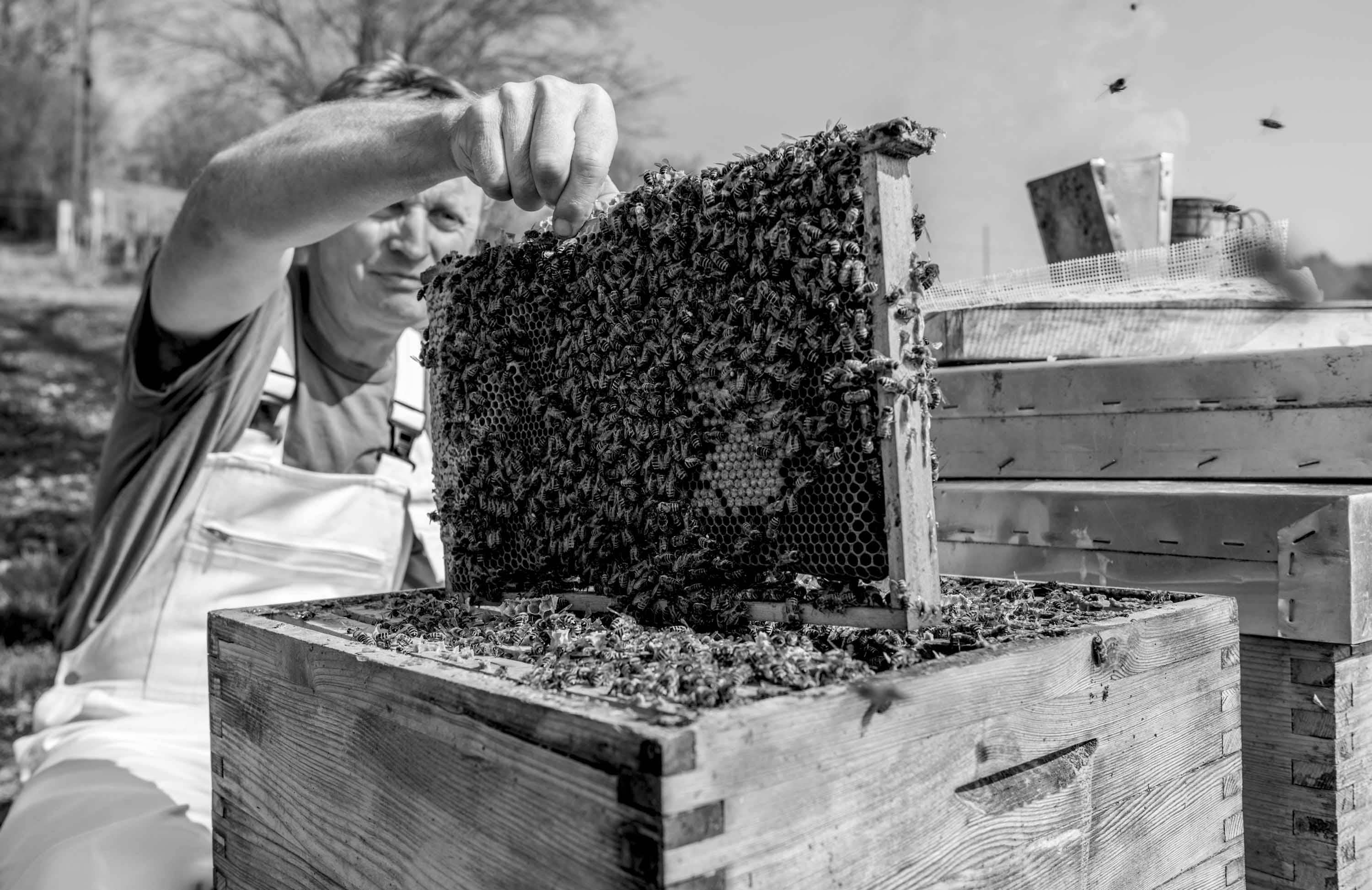
In certain weather conditions, such as heavy rains, the 8 million insects need to be seen more often, as the danger of swarming out is greater. Not surprisingly, Gruber’s VW camper van has run up quite a distance. During the season, which starts mid-March with the flowering of the cherry up to neophytes such as laburnum and impatiens in September, there’s hardly time to catch your breath; after that the bees want to be left in peace. “Feeding the animals with sugar water for the winter finishes at the end of September.” Then it’s waiting, putting together empty hives for the coming season and selling the past summer’s honey. In the meantime the winter bees snuggle up around the queen until late February, when she begins to lay eggs for the coming summer’s generation, the bees who can’t wait to go searching for the best nectar in Styria.
Year by year, high-quality honey is a
reflection of its origins
Johannes Gruber
This honey-tasting rookie gets to try 23 varieties from summer 2015 and before. The journey begins in the woods on the banks of the river Lafnitz, takes me across the dandelion-filled plateau near Waisenegg and ends at Raab’s nature park, where the bees fully exploited the cherry blossoms. The resulting honey is creamy with an aroma of cherry blossom and marzipan. Then we’re taken into the forest; first to the spruces in the Naintschgraben. “This is where in 2015 my father harvested one of his best forest honey vintages. He was 85.” The son’s Naintschgraben is special, too: orange peel and caramel, slightly spicy. Of course, without the first two hives, a 1999 present from the father, the son would have never produced honey. Now the pioneer Johannes Gruber has developed 200 of them as well as his philosophy that honey is the reflection of its origins. Also, honey can mature, as his wood honeys from the Stuhleck from 2003 to 2015 show. Each one reflects not only the location but also that year’s weather. “2012 wasn’t a particularly good year for wood honey. But the dandelion honey has turned out to be especially intense and delicate,” the beekeeper says, just like a vintner. The 2004 vintage of mountain forest honey briefly carries you up into the tops of the silver firs at the Stuhleck. So why indeed should only grapes have the privilege of describing landscapes? This maverick is asking the question now, and one day it will make waves far beyond the four-kilometre radius of the flight of the honeybee.
Stories
Stories of people driven by love and passion for their craft.
The articles can be found in the current 'S Magazine'. Every four months you can find new stories here.
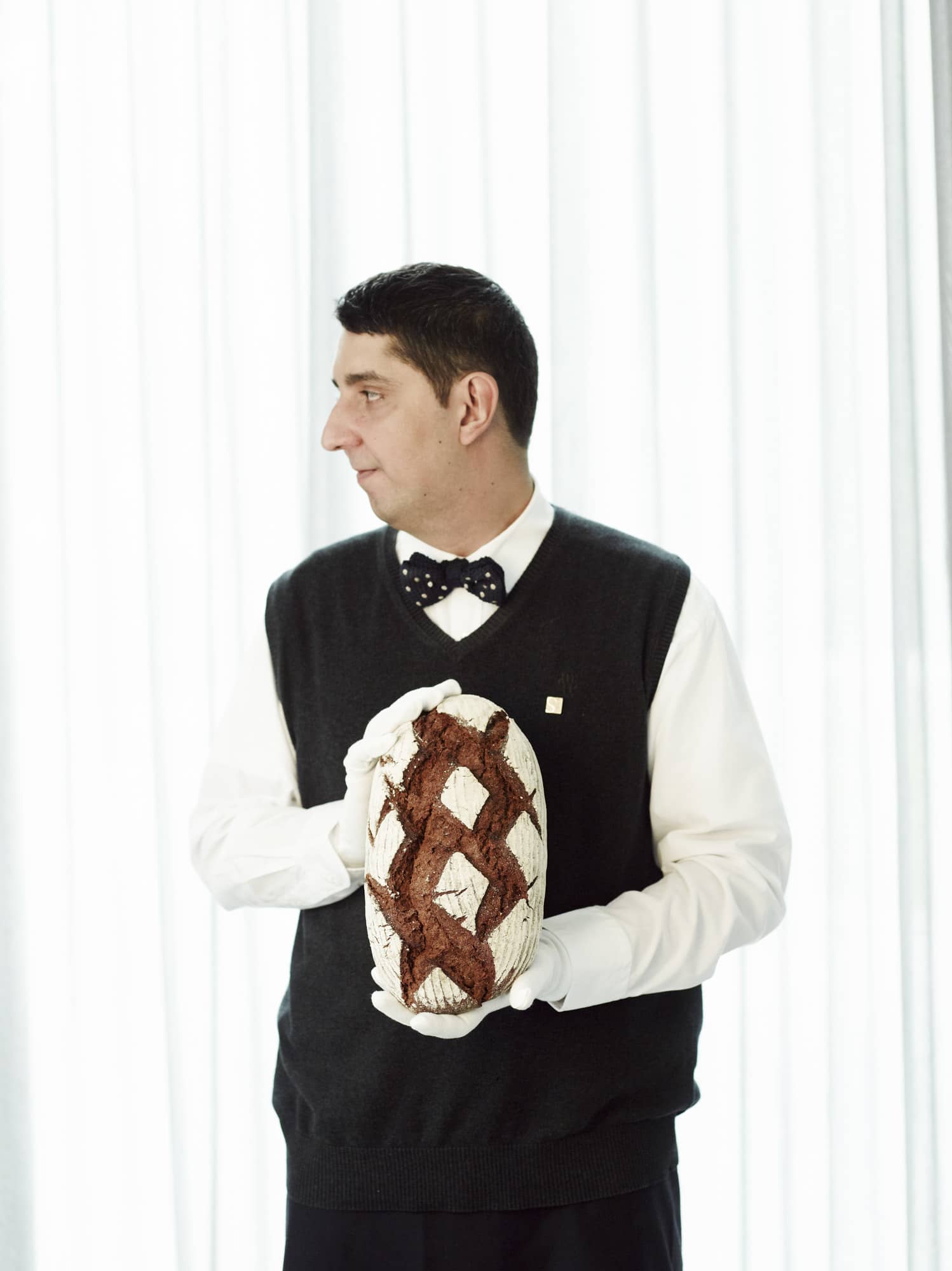
ISSUE 1
The Starter before the Starters
